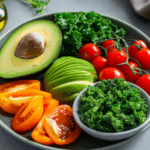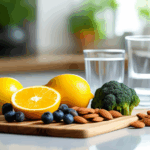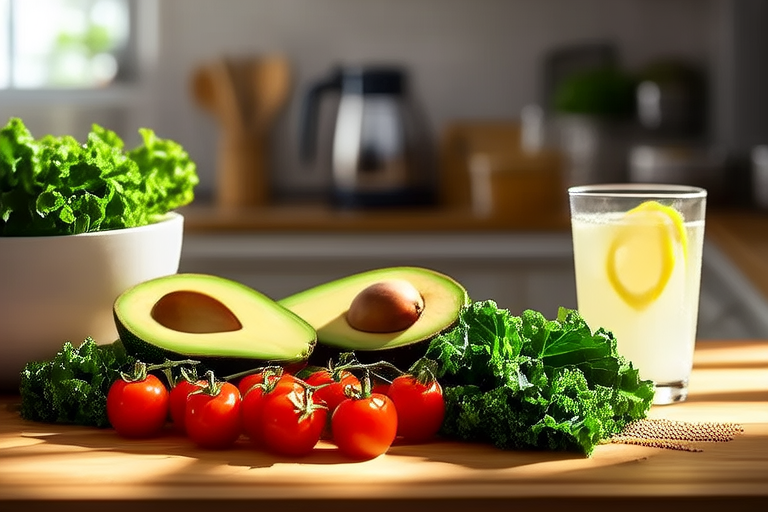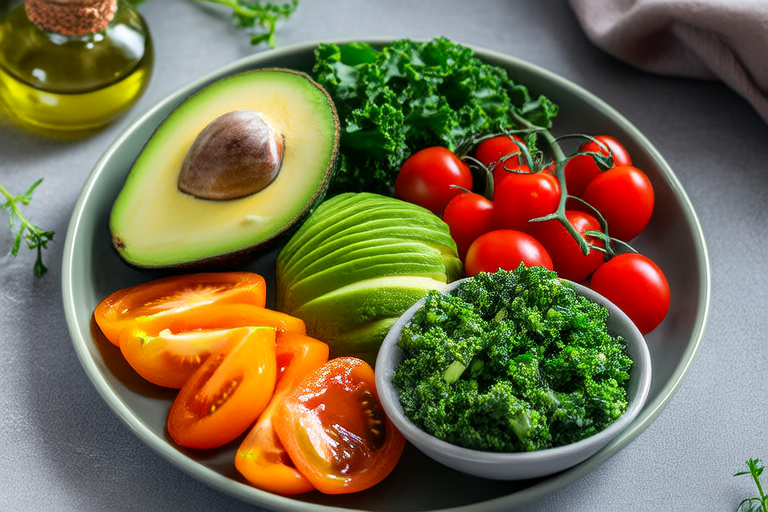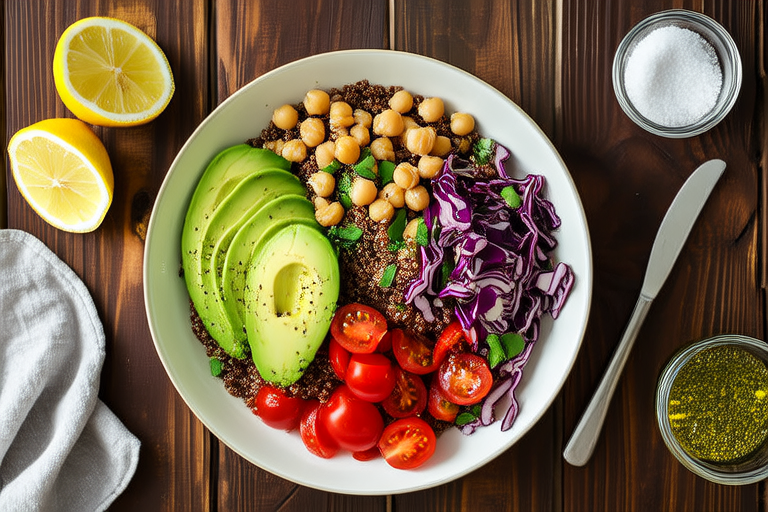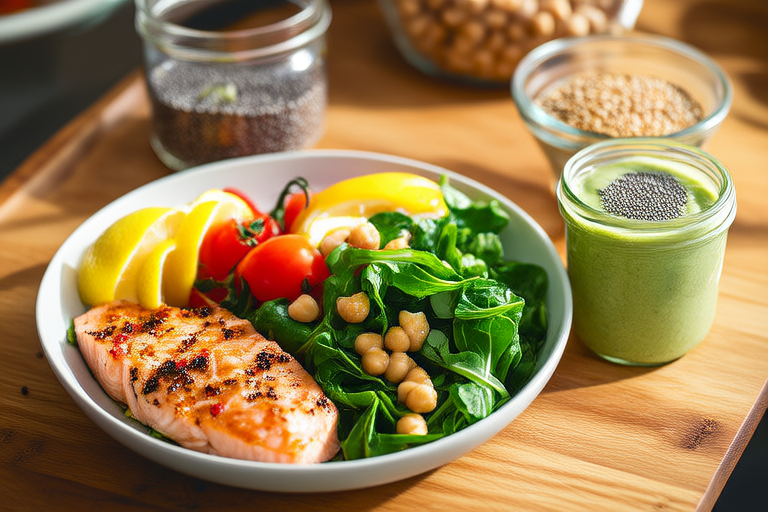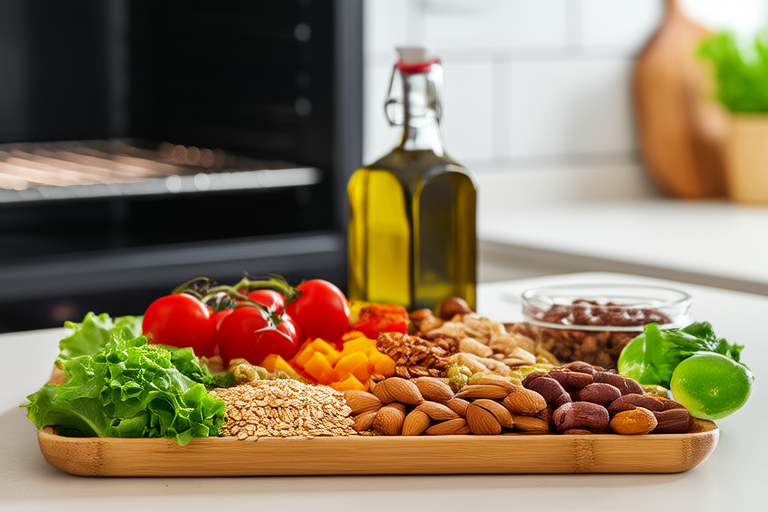Whipping Up Wellness: Healthy Recipes for Improved Well-Being
Nutrition plays a pivotal role in maintaining good health. By incorporating wholesome ingredients into our meals, we can enhance our energy levels, boost immunity, and improve overall well-being. This article delves into the concept of whipping up wellness through healthy recipes, providing a variety of easy-to-follow recipes that cater to different dietary needs. From vegetarian and vegan dishes to gluten-free and low-carb options, these recipes offer versatility and convenience. Additionally, we will discuss key ingredients and their health benefits, along with meal prep tips for a hassle-free approach to healthy eating.
The Importance of Nutrition
A balanced diet rich in nutrients is essential for optimal health. Nutrients provide the body with the necessary fuel to function properly, supporting various bodily processes such as digestion, circulation, and metabolism. A diet lacking in essential nutrients can lead to deficiencies, which may manifest as fatigue, weakened immune system, and increased susceptibility to diseases. Therefore, it is crucial to prioritize nutrition in our daily lives.
Vegetarian and Vegan Recipes
For those seeking plant-based options, there are numerous delicious and nutritious recipes available. Vegetarian and vegan diets emphasize the consumption of fruits, vegetables, whole grains, nuts, seeds, and legumes, which are rich in vitamins, minerals, and antioxidants.
Quinoa Stuffed Bell Peppers
- Ingredients: Red bell peppers, quinoa, black beans, corn, diced tomatoes, onion, garlic, cumin, salt, pepper, olive oil.
- Instructions: Preheat oven to 375°F (190°C). Halve and seed bell peppers, then place them on a baking sheet. Cook quinoa according to package instructions. In a skillet, sauté onions and garlic until softened. Add black beans, corn, and diced tomatoes, cooking for another 5 minutes. Stir in cooked quinoa and spices. Fill each pepper half with the mixture, drizzle with olive oil, and bake for 25 minutes.
- Health Benefits: Quinoa is a complete protein, providing all nine essential amino acids. Bell peppers are rich in vitamin C, which supports collagen production and immune function. Black beans offer fiber and plant-based protein, promoting digestive health and satiety.
Chickpea Salad
- Ingredients: Chickpeas, cucumber, cherry tomatoes, red onion, parsley, lemon juice, olive oil, salt, pepper.
- Instructions: Drain and rinse canned chickpeas. Chop cucumber, cherry tomatoes, and red onion. Combine all ingredients in a bowl, toss with lemon juice, olive oil, salt, and pepper. Chill for at least an hour before serving.
- Health Benefits: Chickpeas are an excellent source of fiber, which aids digestion and helps regulate blood sugar levels. Cucumbers and tomatoes are hydrating and rich in antioxidants, protecting cells from damage. Parsley provides vitamin K, essential for bone health and blood clotting.
Gluten-Free Recipes
Individuals with celiac disease or gluten sensitivity require gluten-free alternatives to maintain their health. Fortunately, there are many tasty and nutritious gluten-free recipes that cater to these dietary needs.
Zucchini Noodles with Pesto
- Ingredients: Zucchini, basil, pine nuts, garlic, Parmesan cheese, olive oil, salt, pepper.
- Instructions: Using a spiralizer, create zucchini noodles. In a food processor, blend basil, pine nuts, garlic, Parmesan, olive oil, salt, and pepper until smooth. Toss zucchini noodles with pesto and serve immediately.
- Health Benefits: Zucchini is low in calories and high in water content, making it a great option for weight management. Basil contains antioxidants and anti-inflammatory compounds, reducing inflammation and oxidative stress. Pine nuts provide healthy fats and magnesium, promoting heart health and muscle function.
Coconut Flour Pancakes
- Ingredients: Coconut flour, almond milk, eggs, vanilla extract, baking powder, cinnamon, maple syrup.
- Instructions: In a mixing bowl, whisk together coconut flour, almond milk, eggs, vanilla extract, baking powder, and cinnamon. Heat a non-stick skillet over medium heat and pour batter onto the pan. Flip when bubbles appear on the surface. Serve with maple syrup.
- Health Benefits: Coconut flour is rich in fiber, aiding digestion and promoting feelings of fullness. Almond milk is a good source of calcium and vitamin E, supporting bone health and skin protection. Eggs provide high-quality protein and essential nutrients like choline and selenium.
Low-Carb Recipes
Low-carb diets have gained popularity for weight loss and blood sugar control. These diets focus on reducing carbohydrate intake while emphasizing healthy fats, proteins, and non-starchy vegetables.
Avocado and Egg Breakfast Bowl
- Ingredients: Avocado, eggs, spinach, tomato, feta cheese, olive oil, salt, pepper.
- Instructions: Slice avocado into a bowl. Fry eggs to your liking and place on top of avocado slices. Add spinach and chopped tomatoes. Drizzle with olive oil, sprinkle with feta cheese, salt, and pepper.
- Health Benefits: Avocados are packed with monounsaturated fats, which support heart health and help lower cholesterol levels. Eggs are a complete protein, providing essential amino acids for muscle repair and growth. Spinach is rich in iron and folate, promoting oxygen transport and cell division.
Baked Salmon with Asparagus
- Ingredients: Salmon fillets, asparagus, lemon, olive oil, dill, salt, pepper.
- Instructions: Preheat oven to 400°F (200°C). Place salmon fillets on a baking sheet lined with parchment paper. Arrange asparagus spears around the fish. Drizzle with olive oil, squeeze fresh lemon juice over the top, and sprinkle with dill, salt, and pepper. Bake for 15-20 minutes, or until salmon flakes easily with a fork.
- Health Benefits: Salmon is an excellent source of omega-3 fatty acids, which reduce inflammation and promote brain health. Asparagus contains vitamins A, C, E, and K, along with folate and fiber, supporting immune function, vision, and digestion.
Meal Prep Tips
Meal prepping is an efficient way to ensure you have healthy meals ready throughout the week. It saves time, reduces stress, and helps maintain consistency in your eating habits. Here are some tips for successful meal prepping:
- Plan Your Meals: Before heading to the grocery store, decide what meals you want to prepare for the week. This will help you create a shopping list and avoid unnecessary purchases.
- Batch Cooking: Prepare large quantities of staple ingredients, such as rice, quinoa, or roasted vegetables, and portion them out into containers. Store them in the refrigerator for up to five days or freeze for longer storage.
- Use Quality Containers: Invest in durable, microwave-safe containers that are easy to clean and stackable. This will make storing and reheating meals more convenient.
- Variety: Incorporate a variety of flavors and textures to keep meals interesting. Experiment with different herbs, spices, and cooking methods to prevent boredom.
The Impact of Healthy Eating on Well-Being
Incorporating these healthy recipes into your daily routine can have a profound impact on your well-being. Regular consumption of nutrient-dense foods promotes better digestion, enhances mood, and increases energy levels. Furthermore, adopting healthier eating habits can lead to weight loss, improved cardiovascular health, and reduced risk of chronic diseases. By prioritizing nutrition and preparing meals in advance, you can establish a sustainable and enjoyable approach to healthy living.
Whipping up wellness through healthy recipes is a rewarding endeavor that contributes to both physical and mental health. By exploring various dietary options and embracing meal prep techniques, you can create a balanced and satisfying eating plan tailored to your unique needs. Start today by trying one of the recipes mentioned above and experience the positive effects of nutritious, delicious meals on your overall well-being.
